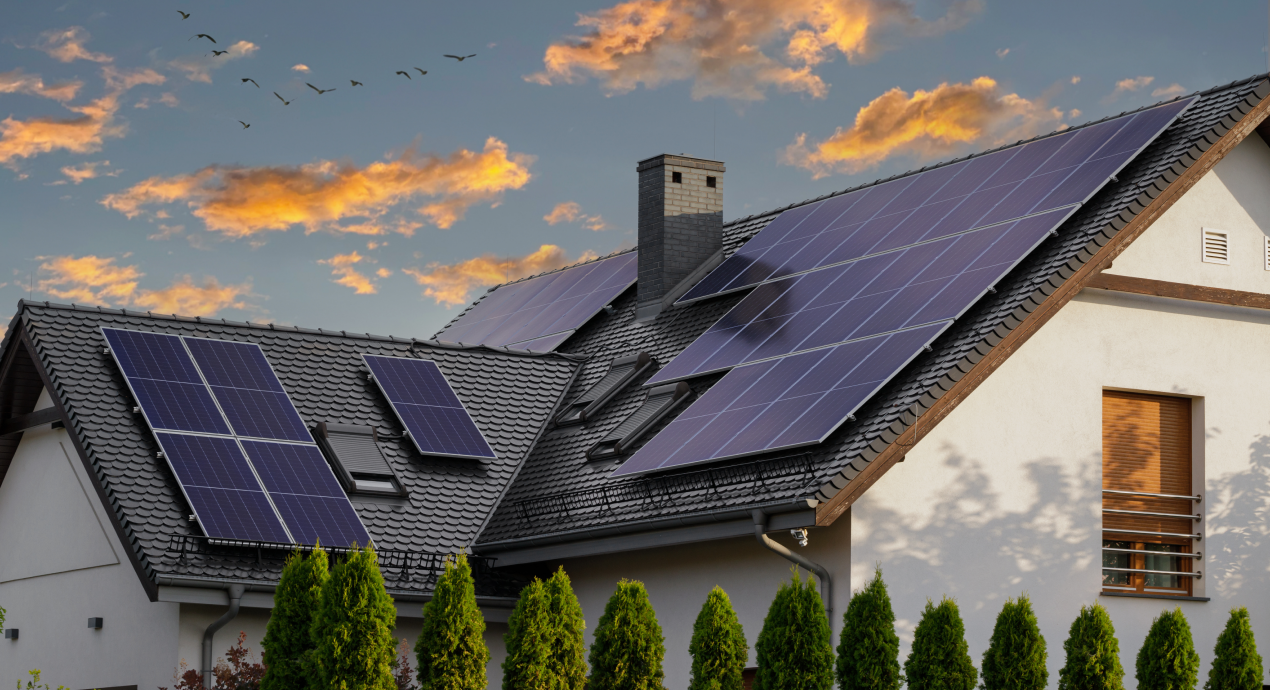Solar power can be an excellent alternative to oil and gas. Private residences can be easily updated to use solar power, which can't always be said for other forms of sustainable energy, such as wind power or hydropower. According to the SEIA, homeowners can save an average of $1,500 per year on electricity bills by installing solar panels. Over a 20-year period, this translates to approximately $30,000 in savings. There are some drawbacks to consider, however, if you're thinking of installing solar panels on your home. To help you make an informed decision, let's review some of the pros and cons of solar panels for home residences.
- Comprehensive Plans
- Highly Competitive Rates
- 24/7/365 Claims
- Online Portal
Advantages of Solar Panels
- Lower energy expenses. Solar power will save you money over time. Once panels are installed, the only costs are related to the general home solar panel maintenance. The energy used to power solar energy systems is effectively free. Imagine never again paying for an oil delivery!
- Improved home value. Solar panels are increasingly desirable in the real estate market. Studies have found that solar panels increase a home's value by around 4%. For the average home in the United States, that's a boost of almost $10,000.
- Smaller carbon footprint. One of the biggest draws of solar power is the environmental benefit. Traditional forms of energy, such as oil and gas, pollute the atmosphere with carbon dioxide and methane. The manufacture and distribution of solar panels is associated with carbon emissions, but solar panels overall greatly reduce a home's carbon footprint.
- Tax benefits. In the United States, there are tax incentives for using solar power. A federal Investment Tax Credit (ITC) is available to homes throughout the nation. Many states also offer solar power rebates.
Disadvantages of Solar Panels
- High upfront costs. For many people, solar panels are prohibitively expensive. Though they save you money in the long run, the upfront costs of solar panels and installation can easily exceed $10,000.
- Lack of portability. Once solar panels are installed, they usually aren't going anywhere. If you need to move, you won't be able to take your solar energy system with you. As mentioned above, solar panels can increase your home's value, so you may recoup the costs of solar panels if you sell your home. But it can still be frustrating to leave behind a system you spent a great deal of money to install.
- Weather dependent. Solar power has become more reliable over time, but it's still dependent on the weather and time of day. Solar systems are less efficient at night and in cloudy weather. Of course, you can store solar energy so you can keep the lights on after the sun sets, but storage can be expensive as well.
- Evolving technology. Solar power technology is always improving. Panels are getting smaller and more efficient. Storage capacity of solar power is increasing. These are good things. But it can mean that your solar energy system will become outdated in time. As technology progresses, you may find yourself wanting to upgrade your solar system.
Do Home Warranties Cover Solar Panels?
Weigh the pros and cons of solar power to determine if it makes sense for you and your lifestyle. If you decide to fit your home with a solar energy system, some basic maintenance can keep your system in working order. You can use a solar panel cover when panels are not in use, and clean your panels seasonally of pollen and grime.
You can also purchase a home solar panel warranty to ensure the long-term efficiency your solar energy system. Give Liberty Home Guard a call at (866) 396-5837 to learn more about how a solar panel warranty can protect your investment and save you money.


